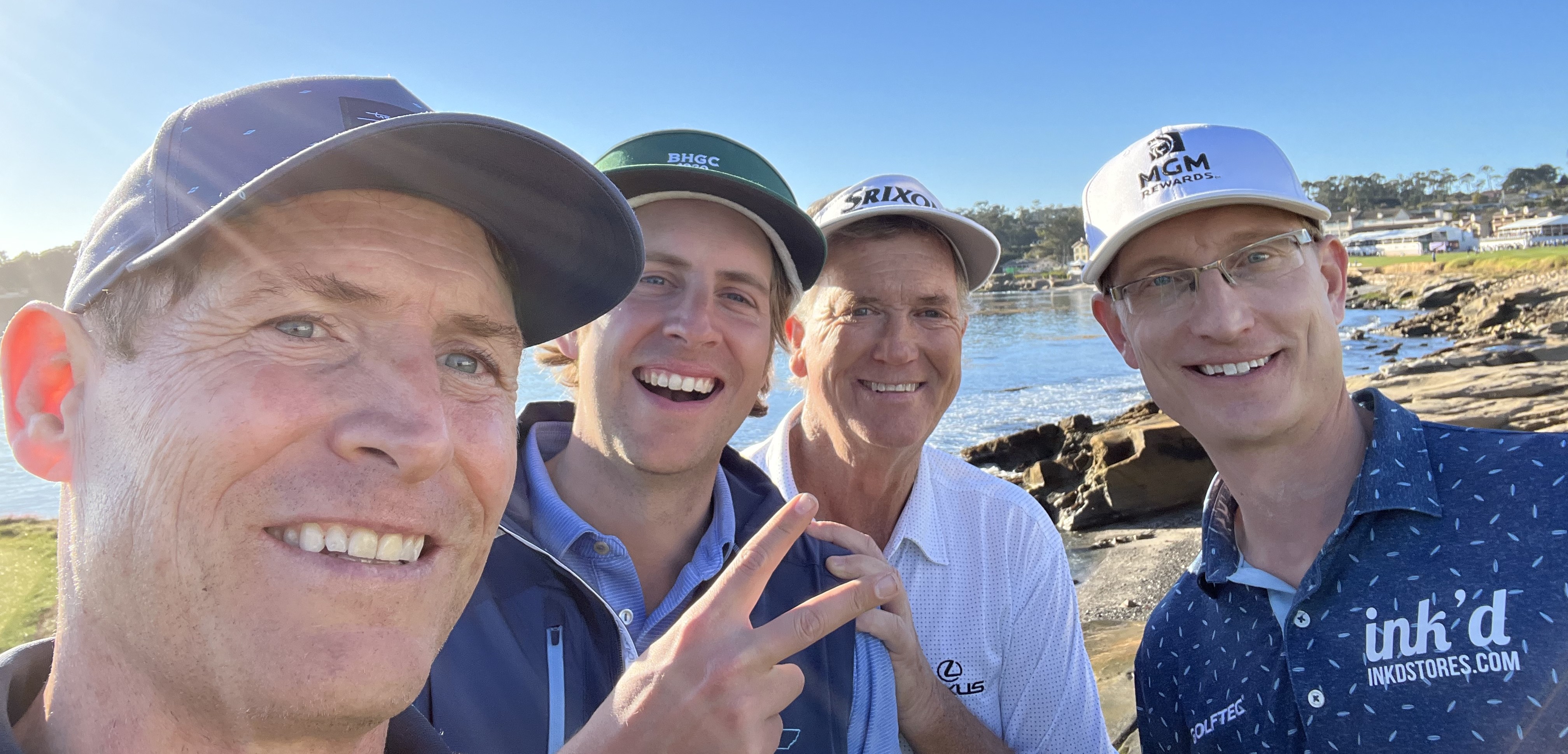It was Christmas Eve, 2007. Jesse Rouse sat in the back seat beside his little sister, Maria, as their dad drove toward their grandparents’ place in Kingston, Oklahoma. The red and white paint on Jim and Doris Rouse’s house trailer was chipped and faded, the metal roof rusted in spots. But this wasn’t a holiday trip filled with gifts or laughter — this was the kids’ new home. Their father, a single parent since their mother had left soon after Maria was born, was headed to prison. His meth addiction had finally caught up to him.
Fifteen years later, Jesse Rouse drove his 2017 Chevy Cruze to his first real pro event. The front right side of the car was still mangled from a hit-and-run a few years back. For a long time after the accident, the passenger door stayed closed only because of an old leather Nike belt looped around the frame. The car shouldn’t have made it, but it did. Against all odds, Jesse Rouse did too.
Rouse was born in McAlester, Oklahoma, in December of 2001. The hardships in his life started early — his mother left less than two years later, after giving birth to Maria. The only thing Jesse knows about the woman who gave birth to him is her name: Brandy. He’s never tried to learn more, never tried to find her, and doesn’t even know if she’s alive. There’s only one fact about her that matters to Jesse: she left.
When I asked Jesse what he remembered about those first six years living with his father, who at the time was battling addiction, he paused. “I remember I got sent home from school because I had ringworm,” he said. In hindsight, Jesse thinks it’s probably best that’s the only thing he remembers.
After their father went to prison, Jesse and Maria moved in with their grandparents. It wasn’t the life anyone planned, but it was the one that held. There was food, a roof, and people who loved them — and for a long time, that was enough.
Jim Rouse, a former Army Ranger who fought in Vietnam, was the reason Jesse started playing golf. He’d picked up the game early and hovered around scratch for much of his life.
Three days a week, starting soon after the kids moved in, Jim would haul Jesse to Chickasaw Pointe, his home course. While Jim played small money matches with the same group of guys he’d known for years, Jesse spent his time on the putting green or the range, watching, learning, waiting for his turn.
Golf was their bond. Jesse remembers sitting in the trailer’s living room in 2009, watching the Open Championship at Turnberry. It was the same living room that doubled as his bedroom that first year, before Jim built an extra room so Jesse could have his own space. Despite the heartbreak of watching Tom Watson lose in a playoff to Stewart Cink, Jesse became a fan. A few years later, his first set of “real” clubs came with a set of Tom Watson wedges. He played nearly every round in a white Adams hat — the same kind Watson wore for years.
As Jesse continued to improve, Jim started letting him play with his weekly group instead of leaving him behind to practice. The group was full of good golfers, and Jesse remembers getting beat by most of them. “I had no idea if I was any good, because I was playing with old guys who would beat my ass all the time,” Jesse told me, laughing as he remembered those rounds with his grandpa’s crew.
At fourteen, Jesse broke par for the first time in competition. He describes the course as “a really easy muni,” but it was still an impressive feat for a high school freshman. Playing junior events outside their local area was out of the question — money was always tight. “I didn’t even know what the AJGA was until I went to college,” Jesse told me. But members at the club and around town had started to take notice of his game.
Members at the club and around town had started to take notice of his game. For the first time, it felt like things were turning in Jesse’s favor. Then, his grandfather died.
Jim Rouse — the man who had raised him, taught him, and given him golf — passed away suddenly during Jesse’s junior year of high school.
Jesse ran to their bedroom. Jim Rouse — his golfing buddy, his grandpa, his hero — was gone.
That afternoon, do you know what Jesse did? He played golf, of course.
“I wanted to play college golf. My grandpa wanted me to play college golf. I love the game, so I played golf,” Jesse told me when I asked what that day was like.
In the months after his grandpa’s death, Jesse kept playing. He didn’t talk about it much, but everyone at Chickasaw Pointe could tell something had changed. He practiced longer, played harder, and carried himself like someone with something to prove.
The work paid off. A few months before graduation, a former high school teammate who was playing college golf mentioned Jesse to his coach. The coach watched a few clips, made a call, and soon after offered Jesse a scholarship.
Jesse turned it down.
He was able to go to college for free using his grandfather’s GI Bill, and he didn’t want to take a spot from someone who needed it. “They could use that money to help another kid,” Jesse said. “I already had my help.”
Jesse graduated high school with a 3.7 GPA and headed to Southeastern Oklahoma State in Durant — just an hour down the road from his grandparents’ trailer. Despite setback after setback, he was going to play college golf.
COVID canceled the first half of his freshman season, and when golf started back up, Jesse struggled with a two-way miss. He played just one tournament and fought his swing the whole way.
That summer, he went back to Chickasaw Pointe and worked hard on his game. And then, tragedy struck again — beginning what Jesse would later call “the worst six months of my life.”
The phone rang at 5:30 in the morning. Jesse let it go once, then again, before finally answering. It was his sister, Maria. Their grandmother was dead.
After battling breast cancer and shingles, Doris Rouse passed away at seventy-seven.
Jesse was nineteen. He didn’t have a mother, didn’t really have a dad, and now the two people who had shaped him into the man he was were gone.
At the time, he had four hundred dollars to his name. He’d spent the summer driving his Chevy Cruze to tournaments, living off the money he made working at Chickasaw Pointe. To make matters worse, his grandparents hadn’t left a will.
A teammate’s father helped Jesse start the process of settling the small estate, finding a lawyer willing to take the case. The lawyer agreed to help Jesse and Maria for free — a process that would take three years to finalize.
He advised Jesse not to touch his grandmother’s bank account, but Jesse decided to leave the house bills on autopay for as long as they would go. The bank froze the account a week after her death.
“I learned how to get the water turned on by having it turned off,” Jesse told me. The air conditioner broke. The plumbing stopped working. With no money to fix any of it, the trailer became hell on earth.
A month after Doris passed, Jesse was watching a movie in his room when he heard a loud noise from the kitchen. He ran in to find Maria convulsing on the cold tile floor. She had swallowed a “bunch of pills” in an attempt to take her own life.
Jesse sprinted out the door and jumped the chain-link fence that bordered the trailer. He banged on the neighbors’ door — luckily, they were home. They ran back with him to help Maria and called 911.
Maria survived.
Somehow, Jesse refused to give up. When he returned to school, he found out the GI Bill that paid for his tuition was tied to his grandmother’s frozen bank account. He pleaded with the university for help, and the school’s president stepped in to make sure Jesse could stay enrolled — and keep his promise to his grandfather.
Maria went to live with distant relatives, and Jesse moved out of the now-dilapidated trailer into a small apartment with three of his teammates in Durant, where Southeastern Oklahoma State was based.
It’s no surprise that Jesse struggled that year. His game, like his life, was still trying to find balance. The next season wasn’t much better.
But his senior year was different. He played in every event, finished with the second-best scoring average on the team, and posted multiple rounds under par. His first year (granted because of Covid) was even better. It included six top-25s, three top-10s, and he was ranked 82nd in the country.
And at the final round of the conference round, his dad Chris came to watch him play. Chris has been clean for years now and is a counselor at a rehab center.
For the first time in a long time, Jesse Rouse felt like he belonged — like he might actually have a shot at playing professional golf.
Somehow through all of this, Jesse has kept a positive outlook. “I’ve never thought the world was against me. So many people go through the hardest parts of their life as an adult. I’ve already gone through mine. The best is ahead. I owe a lot of that to golf.”
Jesse Rouse defied the odds long before he ever teed it up in a college event. He graduated from Southeastern Oklahoma State with a degree in Business Administration — the first in his family to do so. Whether or not he ever makes it to the PGA Tour, his story is already a success. The odds of getting there are long, but Jesse’s beaten longer ones before.
These days, he still drives that same 2017 Chevy Cruze — the front fender still bent, the paint still scarred. The car shouldn’t have made it this far.
But it did. And so did he.
Lorem ipsum dolor sit amet, consectetur adipiscing elit. Suspendisse varius enim in eros elementum tristique. Duis cursus, mi quis viverra ornare, eros dolor interdum nulla, ut commodo diam libero vitae erat. Aenean faucibus nibh et justo cursus id rutrum lorem imperdiet. Nunc ut sem vitae risus tristique posuere.






.jpg)
0 Comments